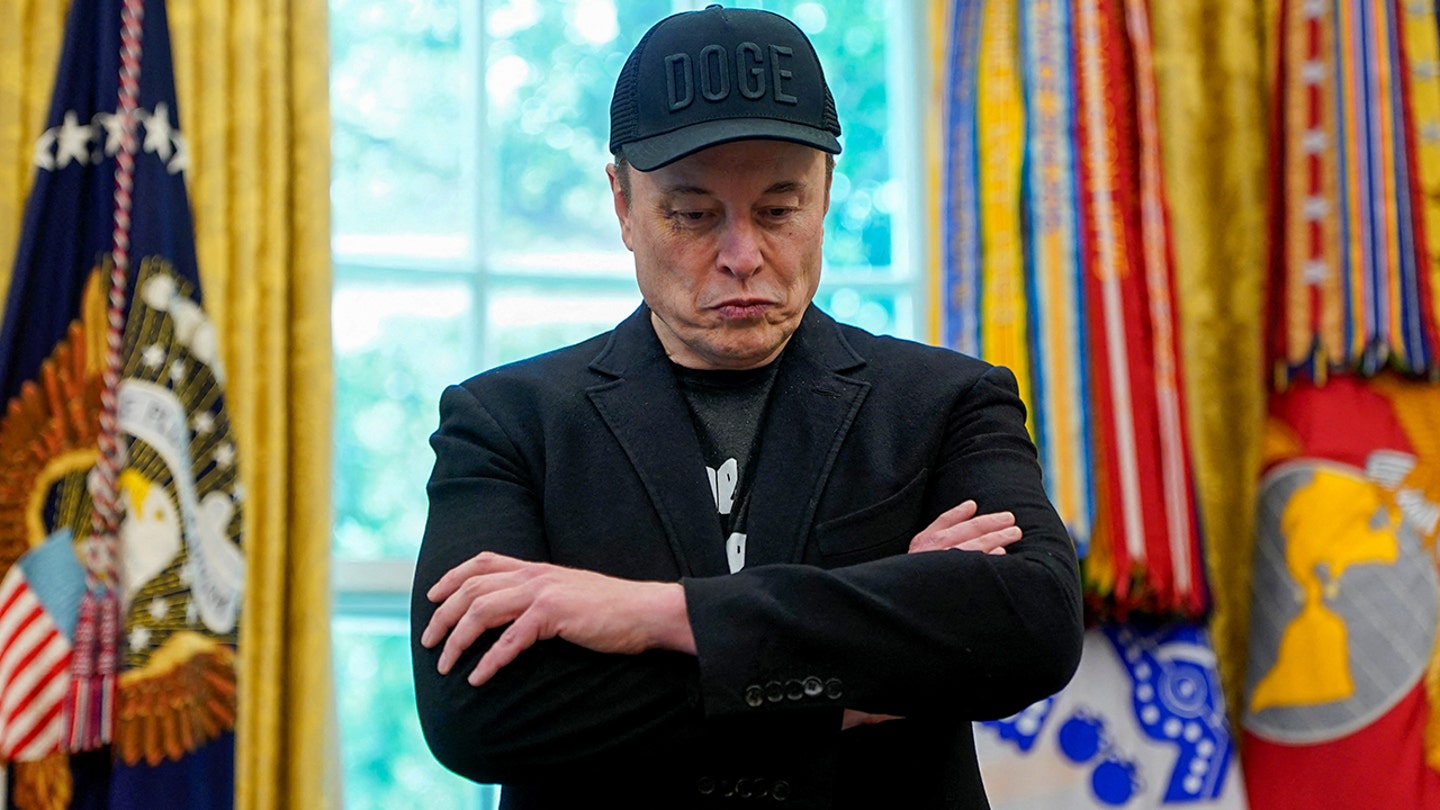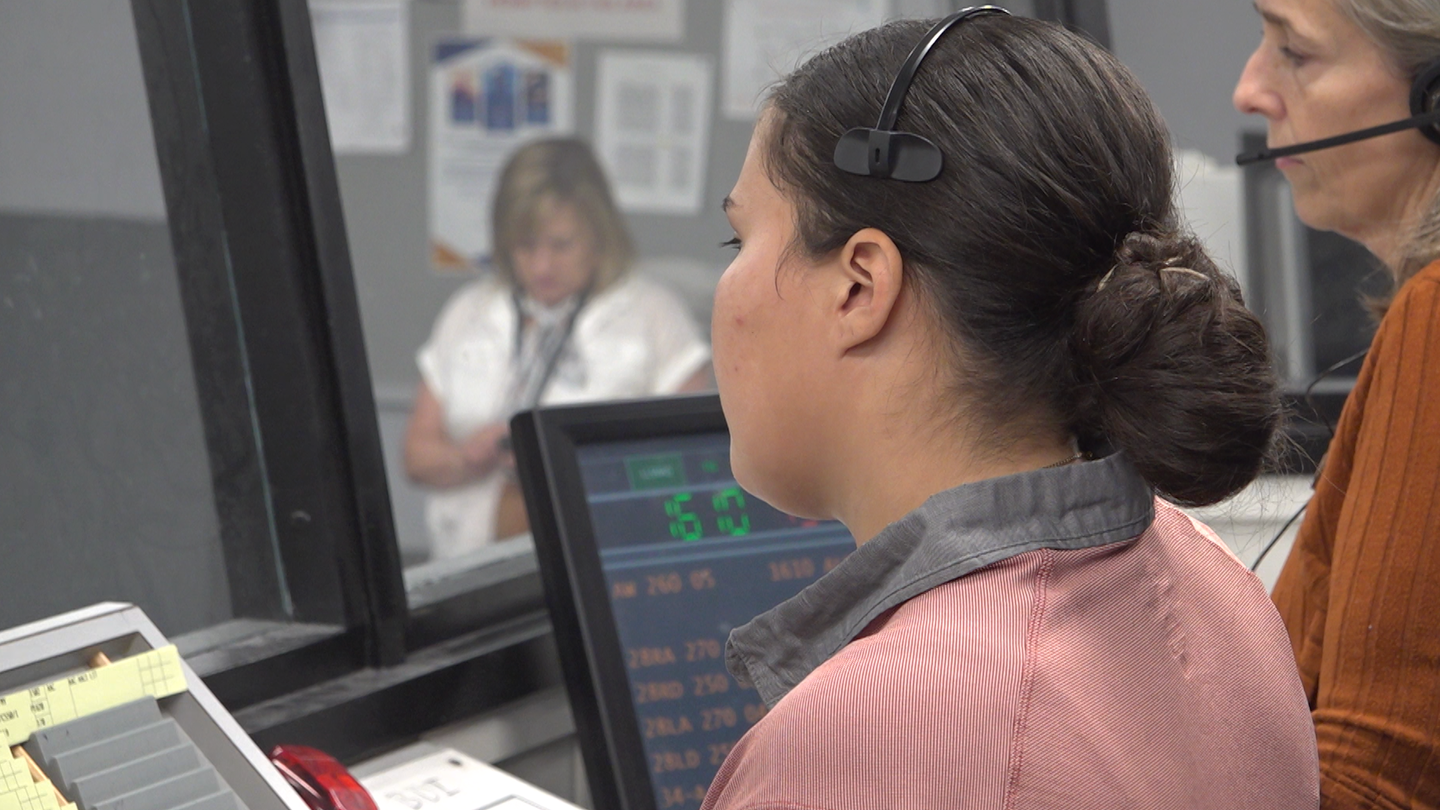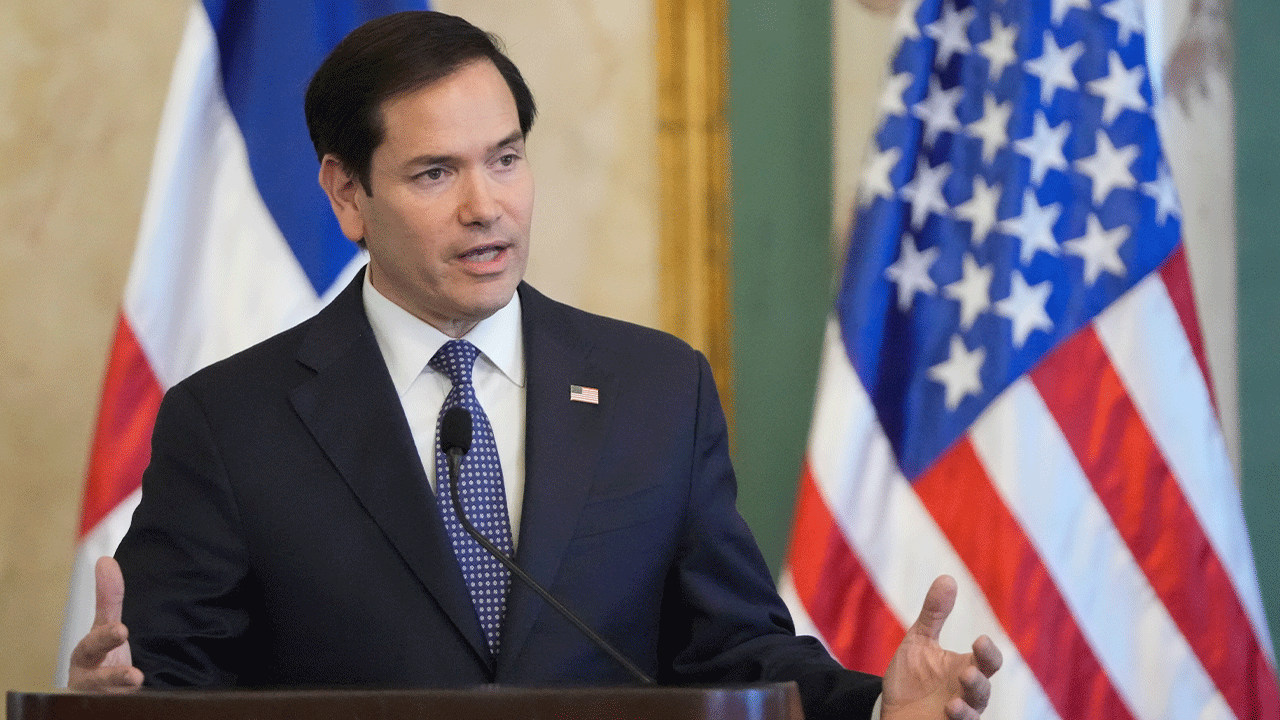
Judge rules that some Texas schools don’t have to display Ten Commandments in classrooms
Entities mentioned:
- Judge Fred Biery: Justice, Righteousness, Duty
- Texas school districts: Obligation, Wariness, Self-preservation
- Texas state legislature: Control, Righteousness, Influence
- Texas families (plaintiffs): Freedom, Justice, Self-respect
- Gov. Greg Abbott: Control, Righteousness, Influence
- Tommy Buser-Clancy (ACLU): Justice, Freedom, Duty
- Ken Paxton: Righteousness, Determination, Influence
Article Assessment:
Credibility Score: 75/100
Bias Rating: 45/100 (Center)
Sentiment Score: 55/100
Authoritarianism Risk: 25/100 (Generally Democratic)
Bias Analysis:
The article presents multiple perspectives, including the judge's ruling, plaintiffs' arguments, and the state's defense. While it gives more space to arguments against the law, it also includes the opposing view from the Texas Attorney General.
Key metric: First Amendment Protections
As a social scientist, I analyze that this ruling significantly impacts First Amendment protections in public schools. The judge's decision to block the enforcement of the Ten Commandments display law in several Texas school districts upholds the separation of church and state. This ruling sets a precedent that could influence similar cases in other states, potentially strengthening First Amendment protections nationwide. The decision reflects a tension between religious conservative efforts to introduce religious symbols in public spaces and the constitutional principle of religious neutrality in government institutions. The judge's detailed and occasionally humorous opinion suggests a strong stance against what he perceives as unconstitutional religious influence in public education, which could have far-reaching implications for similar legislative efforts in other states.

Trump escalates attacks against Smithsonian museums, says there’s too much focus on ‘how bad slavery was’
Entities mentioned:
- Donald Trump: Control, Power, Influence
- Smithsonian Institution: Professional pride, Duty, Curiosity
- Lonnie Bunch III: Professional pride, Duty, Education
- Janet Marstine: Professional pride, Duty, Wariness
- JD Vance: Loyalty, Power, Influence
- Lindsey Halligan: Loyalty, Power, Control
- Jillian Michaels: Righteousness, Indignation, Influence
Article Assessment:
Credibility Score: 75/100
Bias Rating: 45/100 (Center)
Sentiment Score: 35/100
Authoritarianism Risk: 65/100 (Authoritarian Tendencies)
Bias Analysis:
The article presents multiple viewpoints and includes direct quotes from various sources. While it gives more space to criticisms of Trump's actions, it also includes perspectives supporting his stance, maintaining a relatively balanced approach.
Key metric: Cultural Cohesion
As a social scientist, I analyze that this article highlights a significant conflict between political ideology and historical education in the United States. The attempt to control narrative in cultural institutions like the Smithsonian represents a potential shift in how national history is presented and understood. This could have far-reaching effects on cultural cohesion, potentially polarizing public opinion on historical interpretations and impacting national identity formation. The administration's actions suggest an attempt to reshape collective memory, which could lead to a more fragmented understanding of American history across different segments of society. This conflict between political directives and academic/curatorial expertise also raises questions about the independence of cultural institutions and their role in society.

Obama calls Newsom’s redistricting plan ‘a responsible approach’ in response to Texas Republicans redrawing maps
Entities mentioned:
- Barack Obama: Justice, Influence, Legacy
- California Democrats: Power, Justice, Competitive spirit
- Texas Republicans: Power, Control, Competitive spirit
- Gavin Newsom: Justice, Power, Competitive spirit
- Nancy Pelosi: Power, Influence, Loyalty
- Eric Holder: Justice, Influence, Loyalty
- National Democratic Redistricting Committee: Justice, Power, Influence
Article Assessment:
Credibility Score: 75/100
Bias Rating: 40/100 (Lean Left)
Sentiment Score: 45/100
Authoritarianism Risk: 35/100 (Generally Democratic)
Bias Analysis:
The article leans slightly left, primarily due to its focus on Democratic figures and initiatives. While it presents Republican actions negatively, it does include Obama's nuanced view on gerrymandering, providing some balance.
Key metric: Electoral Representation
As a social scientist, I analyze that this article highlights the ongoing struggle between Democrats and Republicans over redistricting and its impact on electoral representation. Obama's support for Newsom's plan, while expressing concern about gerrymandering in general, reflects the Democrats' attempt to counter Republican efforts in Texas. This situation underscores the tension between short-term political gains and long-term democratic ideals. The contrast between California's voter-based approach and Texas's legislature-driven process further emphasizes the differing strategies in managing redistricting. This conflict over redistricting methods could significantly affect the balance of power in the U.S. House of Representatives and the overall fairness of electoral representation across the country.

Elon Musk halts plans for new political party, prioritizing business instead: report
Entities mentioned:
- Elon Musk: Ambition, Influence, Self-preservation
- America Party: Unity, Freedom, Change
- Republican Party (GOP): Power, Control, Self-preservation
- JD Vance: Ambition, Power, Loyalty
- Donald Trump: Power, Control, Revenge
- Department of Government Efficiency: Duty, Professional pride, Control
Article Assessment:
Credibility Score: 65/100
Bias Rating: 55/100 (Center)
Sentiment Score: 45/100
Authoritarianism Risk: 35/100 (Generally Democratic)
Bias Analysis:
The article presents a relatively balanced view, incorporating multiple perspectives and sources. However, there's a slight lean towards emphasizing the drama and personal conflicts, which is typical of center-right reporting on political figures.
Key metric: Political Polarization Index
As a social scientist, I analyze that this article highlights the complex interplay between business interests and political ambitions in the American political landscape. Musk's reported decision to halt plans for a new political party reflects the challenges of disrupting the established two-party system. The apparent reconciliation between Musk and Trump, after a period of public conflict, suggests a strategic realignment that could impact political discourse and voter sentiment. This development may contribute to maintaining the status quo in terms of political polarization, as the potential for a significant third-party option seems to have diminished. The article also underscores the influence of high-profile individuals in shaping public opinion and political narratives through social media platforms.

Giving Putin the Donbas would hand Moscow powerful leverage over Kyiv’s financial survival
Entities mentioned:
- Volodymyr Zelenskyy: Determination, Loyalty, Self-preservation
- Vladimir Putin: Power, Control, Ambition
- Elina Beketova: Professional pride, Duty, Influence
- Grace Mappes: Professional pride, Duty, Influence
- Russia: Power, Control, Greed
- Ukraine: Self-preservation, Freedom, Unity
Article Assessment:
Credibility Score: 75/100
Bias Rating: 45/100 (Center)
Sentiment Score: 35/100
Authoritarianism Risk: 25/100 (Generally Democratic)
Bias Analysis:
The article presents a balanced view, incorporating perspectives from multiple experts and providing context. While it leans slightly towards the Ukrainian perspective, it maintains a generally neutral tone in presenting facts and analysis.
Key metric: Economic Stability
As a social scientist, I analyze that this article highlights the critical importance of the Donbas region to Ukraine's economic survival and Russia's strategic interests. The region's vast natural resources, including coal, salt, and gas, represent significant economic leverage. Conceding this area to Russia would not only weaken Ukraine's defensive capabilities but also severely impact its ability to finance post-war reconstruction. The estimated $524 billion needed for recovery underscores the magnitude of Ukraine's economic challenges. The article suggests that Russia's proposal for Ukraine to cede the Donbas is not a genuine compromise but a strategic maneuver to gain control over critical resources and weaken Ukraine's position. This situation directly impacts Ukraine's economic stability, a key performance metric for the country's future viability and independence.

Vance, White House blast 'crazy communists' protesting DC clean-up, terrorizing locals: 'Stupid White hippies'
Entities mentioned:
- JD Vance: Righteousness, Security, Control
- Donald Trump: Power, Control, Legacy
- Pete Hegseth: Loyalty, Duty, Security
- Stephen Miller: Control, Righteousness, Moral outrage
- Protesters: Moral outrage, Justice, Freedom
- Trump Administration: Control, Security, Power
Article Assessment:
Credibility Score: 55/100
Bias Rating: 75/100 (Lean Right)
Sentiment Score: 30/100
Authoritarianism Risk: 70/100 (Authoritarian Tendencies)
Bias Analysis:
The article leans right, evidenced by its uncritical presentation of administration claims and use of loaded language against protesters. It primarily presents the administration's perspective without substantial counterbalancing views or fact-checking.
Key metric: Violent Crime Rate
As a social scientist, I analyze that this article highlights a contentious approach to addressing crime and homelessness in Washington D.C. The Trump administration's forceful intervention, while claiming to reduce crime, raises questions about civil liberties and the appropriate balance between security and individual rights. The rhetoric used by officials, particularly Miller, is divisive and potentially inflammatory, characterizing protesters as disconnected from the community and labeling them with politically charged terms. This approach may exacerbate social tensions and polarization. The reported 35% drop in violent crime over nine days is a significant claim that would require careful verification and context to fully assess its validity and sustainability.

Duffy’s DOT accuses Biden, Buttigieg of inflating air traffic controller pipeline: ‘Juiced the numbers’
Entities mentioned:
- Trump administration's Department of Transportation: Professional pride, Security, Control
- Biden administration: Ambition, Recognition, Influence
- Pete Buttigieg: Self-preservation, Competitive spirit, Righteousness
- Sean Duffy: Duty, Professional pride, Security
- Federal Aviation Administration (FAA): Professional pride, Safety, Duty
Article Assessment:
Credibility Score: 65/100
Bias Rating: 70/100 (Lean Right)
Sentiment Score: 35/100
Authoritarianism Risk: 40/100 (Generally Democratic)
Bias Analysis:
The article leans right, evidenced by more extensive quotes from Trump administration officials and a more critical tone towards the Biden administration's actions. While it includes some rebuttals from Buttigieg's team, these are presented more defensively.
Key metric: Air Traffic Controller Staffing Levels
As a social scientist, I analyze that this article highlights a contentious issue in air traffic controller recruitment and training standards between the Trump and Biden administrations. The Trump administration claims to be raising standards to improve completion rates at the training academy, while accusing the Biden administration of lowering standards to inflate recruitment numbers. This dispute impacts air traffic controller staffing levels, a critical component of air travel safety and efficiency. The conflicting claims and changes in qualification criteria suggest a politicization of what should be a strictly professional and safety-oriented process. This situation may lead to public uncertainty about the quality and sufficiency of air traffic control staffing, potentially affecting confidence in air travel safety.

Russians made concessions ‘almost immediately,’ Trump envoy says of Putin summit
Entities mentioned:
- Donald Trump: Power, Influence, Legacy
- Vladimir Putin: Control, Power, Self-preservation
- Steve Witkoff: Loyalty, Duty, Professional pride
- Volodymyr Zelenskyy: Security, Unity, Self-preservation
- Karoline Leavitt: Duty, Loyalty, Professional pride
- United States: Influence, Power, Security
- Russia: Control, Power, Self-preservation
- Ukraine: Security, Freedom, Self-preservation
- NATO: Security, Unity, Influence
Article Assessment:
Credibility Score: 65/100
Bias Rating: 55/100 (Center)
Sentiment Score: 60/100
Authoritarianism Risk: 35/100 (Generally Democratic)
Bias Analysis:
The article presents multiple perspectives, including those of U.S., Russian, and Ukrainian officials. However, it relies heavily on statements from Trump administration officials, which may slightly skew the narrative towards a U.S.-centric view.
Key metric: International Relations and Diplomacy
As a social scientist, I analyze that this article highlights a significant shift in U.S.-Russia relations, with potential implications for global security and diplomacy. The reported concessions by Russia during the Trump-Putin summit suggest a possible de-escalation of tensions over Ukraine. However, the specifics of these concessions are not disclosed, which limits a comprehensive assessment of their impact. The focus on security guarantees for Ukraine, without U.S. troop involvement, indicates a strategic approach to maintain stability in the region while avoiding direct military confrontation. The involvement of European allies in discussions points to a multilateral effort to address the Ukraine crisis. The article also reveals the delicate balance between diplomatic negotiations and public disclosure, as evidenced by the cautious statements from U.S. officials. Overall, this development could potentially lead to a reconfiguration of power dynamics in Eastern Europe, affecting U.S. influence in the region and global perceptions of its diplomatic capabilities.

US announces more sanctions on ICC officials for targeting Americans, Israelis
Entities mentioned:
- International Criminal Court (ICC): Justice, Influence, Duty
- United States: Self-preservation, Power, Control
- Israel: Self-preservation, Security, Power
- Marco Rubio: Righteousness, Patriotism, Power
- Donald Trump: Power, Control, Influence
Article Assessment:
Credibility Score: 75/100
Bias Rating: 55/100 (Center)
Sentiment Score: 35/100
Authoritarianism Risk: 65/100 (Authoritarian Tendencies)
Bias Analysis:
The article presents both US and ICC perspectives, quoting officials from both sides. However, it gives slightly more space to the US position and reasoning behind the sanctions, suggesting a slight lean towards the US viewpoint.
Key metric: International Relations and Diplomacy
As a social scientist, I analyze that this move by the United States to sanction ICC officials significantly impacts international relations and diplomacy. The sanctions represent a strong pushback against international jurisdiction over US and Israeli nationals, potentially weakening the ICC's global influence and effectiveness. This action may strain relationships with allies, particularly those who are ICC members, and could be seen as the US prioritizing its sovereignty over international cooperation in matters of justice. The move also risks undermining the broader system of international law and could encourage other nations to similarly reject international court decisions they disagree with, potentially leading to a more fragmented global legal order.

Russian drone crashes in Polish field; Warsaw protests airspace violation and plans formal complaint
Entities mentioned:
- Russia: Power, Influence, Provocation
- Poland: Self-preservation, Security, Indignation
- Wladyslaw Kosiniak-Kamysz: Duty, Security, Wariness
- United States: Influence, Peace, Control
- European leaders: Unity, Security, Peace
- Ukraine: Self-preservation, Freedom, Justice
- Trump administration: Influence, Legacy, Power
Article Assessment:
Credibility Score: 75/100
Bias Rating: 55/100 (Center)
Sentiment Score: 30/100
Authoritarianism Risk: 35/100 (Generally Democratic)
Bias Analysis:
The article presents a relatively balanced view, including perspectives from Polish officials and local residents. However, there's a slight lean towards Western viewpoints, with more emphasis on Polish and US reactions than Russian perspectives.
Key metric: International Security and Diplomacy
As a social scientist, I analyze that this incident of a Russian drone crashing in Poland represents a significant escalation in international tensions, particularly in the context of the ongoing Ukraine-Russia conflict. The event demonstrates Russia's willingness to provoke NATO members, potentially testing the alliance's resolve and response mechanisms. This action could impact international security by increasing military alertness in Eastern Europe and potentially straining diplomatic efforts to resolve the Ukraine conflict. The incident also highlights the complex interplay between military technology, international borders, and diplomatic relations in modern warfare and peacekeeping efforts. The Trump administration's involvement in brokering talks between Russia and Ukraine adds another layer of complexity to the situation, potentially influencing the geopolitical dynamics in the region.